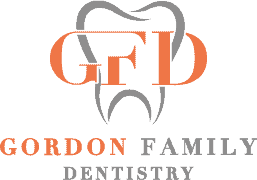Dental filling longevity varies by material type, oral hygiene, and location within the mouth. Factors like wear and tear, decay, and age influence how long fillings last. Regular dental check-ups are crucial for early detection and maintenance.
Sensitivity and visible changes are signs of failing fillings. Prolonging lifespan involves good oral hygiene, durable materials, and avoiding habits detrimental to fillings. Understanding these aspects aids in a long lasting tooth feeling.
How Long Should a Dental Filling Last?
Dental fillings should last 5-20 years depending on the material used. Amalgam and ceramic last the longest at 15 years, while composite and glass ionomer last 5-7 years. Gold and metal fillings can last up to 20 years. Regular dentist visits and proper care can help extend the lifespan of fillings.
Factors Affecting Filling Longevity
Considering the impact of both dental filling location and material composition on their longevity, several factors influence the durability of fillings in the mouth.
Factors such as the type of material used, the location of the filling in the mouth, the level of wear and tear the filling is subjected to, and the care taken by the individual in maintaining good oral hygiene influence its durability.
Different materials have varying longevity, with amalgam fillings typically lasting longer than composite fillings. The reasons for the replacement of fillings can vary, including recurrent decay around the filling, wear and tear over time, or simply the age of the filling.
Types of Dental Filling Materials
Various materials are utilised in dental fillings to restore decayed or damaged teeth. Common types include resin, amalgam, silver, gold, and porcelain. Each material offers unique characteristics in terms of durability, lifespan, restoration, and aesthetic appeal.
Resin fillings, also known as composite fillings, are popular because they can match the natural color of teeth, making them a preferred choice for visible areas. They are also durable and can withstand moderate pressure from chewing.
Amalgam fillings, which consist of a mixture of metals, including silver, are known for their strength and longevity. However, due to their silver colour, they are more noticeable than resin fillings.
Gold fillings are highly durable and can last for many years, making them a reliable option for restorations in heavy chewing areas. Porcelain fillings, on the other hand, are stain-resistant and offer a natural look that can blend seamlessly with the surrounding teeth. Each material has its advantages, and the choice of filling depends on factors such as location, budget, and personal preference.
Impact of Oral Hygiene Practices
Effective oral hygiene practices play a pivotal role in maintaining the longevity and integrity of dental fillings, influencing their durability and overall success in restoring decayed or damaged teeth. Consistent brushing and flossing help remove plaque, a sticky film of bacteria, preventing cavities and further decay around dental fillings.
Oral hygiene directly impacts the lifespan of fillings as poor habits can lead to bacterial growth, compromising the tooth-filling bond and causing recurrent decay. Regular dental check-ups, part of preventive care, are essential for detecting any issues early on and ensuring the longevity of dental fillings.
Dentists can provide guidance on proper oral hygiene techniques that are personalised to individual needs. By prioritising oral hygiene and attending routine check-ups, individuals can significantly enhance the lifespan of their dental fillings and maintain optimal dental health.
Location of Fillings in the Mouth
The strategic placement of dental fillings within the mouth plays a crucial role in determining their long-term effectiveness and durability. Fillings are commonly used to restore teeth damaged by cavities, and the location of these fillings can significantly impact their longevity. Fillings in high-stress areas such as the back molars are subjected to more pressure from chewing, which can affect their durability over time. Additionally, fillings in areas that are harder to reach for proper oral hygiene maintenance may be more prone to damage and decay.
The materials used for fillings also play a role in their longevity, but the location within the mouth is a key factor. For example, fillings in the front teeth are more visible and may require materials that blend in with the natural tooth colour for aesthetic purposes. On the other hand, fillings in the back teeth may require stronger materials to withstand the forces of chewing.
Proper placement of fillings in the mouth is essential to ensure their durability and effectiveness in restoring natural teeth. Dentists carefully consider the location of the cavity and the patient’s unique oral hygiene habits when determining the best approach to restore the tooth with a filling.
Proper dental care, such as regular brushing, flossing, and check-ups, can also impact the longevity of fillings by preventing decay and other issues that may lead to replacement. Understanding these factors can help individuals make informed decisions about their dental care to ensure the longevity of their fillings.
Signs of Failing Dental Fillings
Detecting signs of failing dental fillings is crucial for timely intervention and maintenance of oral health.
One common sign of a failing dental filling is sensitivity to hot, cold, sweet, or sour foods and drinks. If you experience increased sensitivity in a tooth with a filling, it could indicate that the filling is no longer effectively sealing the tooth against external stimuli.
Another sign to look out for is visible cracks or wear on the surface of the filling. Cracks can allow bacteria to penetrate the filling and lead to decay underneath. Additionally, if you notice any rough edges or a change in the texture of the filling, it may be a sign of deterioration.
Regular dental check-ups are essential to catch these signs early and address any issues before they worsen. By being vigilant and proactive, you can help prolong the lifespan of your dental fillings and maintain good oral health.
Tips for Prolonging Filling Lifespan
Implementing good oral hygiene practices and making healthy lifestyle choices can significantly preserve the integrity of your dental fillings. Regular brushing with fluoride toothpaste and flossing help prevent decay around the filling edges.
Visiting your dentist for routine check-ups allows for early detection of any issues that may affect the fillings’ durability. Choosing durable filling materials, like composite resin or porcelain, can also contribute to their longevity.
Avoiding habits like teeth grinding or chewing on hard objects can help maintain the integrity of the fillings. Additionally, reducing sugar intake and consuming a balanced diet benefits oral health and extends dental fillings’ lifespan. By following these tips and being mindful of your oral health habits, you can help prolong the lifespan of your fillings and promote a healthy smile for years to come.
Key Takeaways
Dental fillings’ longevity depends on the type of material used, oral hygiene practices, and their location in the mouth. Various factors can affect the lifespan of fillings, leading to signs of failure over time.
Proper oral hygiene practices and regular dental check-ups are essential to prolonging the lifespan of fillings.
For expert dental care and guidance on maintaining your fillings, visit the best dentists at Gordon 2072. Take proactive steps today to preserve your oral health and the lifespan of your dental fillings.

